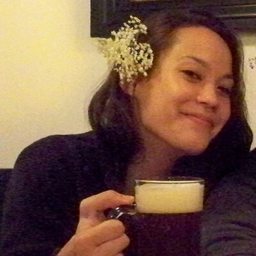
Smriti Mallapaty
Asia-Pacific Reporter at Nature
Asia-Pacific reporter for Nature News (smriti-dot-mallapaty-at-nature-dot-com)
Articles
-
1 week ago |
nature.com | Smriti Mallapaty
After an injury, some flatworms can regrow almost every cell in their bodies, axolotls can rebuild entire limbs and parts of their brain, zebrafish can mend broken spinal cords and green anole lizards can fabricate new tails. Most mammals are incapable of the restorative feats seen in fish, amphibians, reptiles and worms, whose abilities have long fascinated researchers.
-
1 week ago |
nature.com | Smriti Mallapaty
Researchers have developed mice with organs containing human cells, using a convenient and surprising approach — injecting the cells directly into the amniotic fluid of pregnant mice. The method resulted in baby mice with a sprinkling of human cells in their intestines, liver and brain. But researchers say that, for the technique to be useful, more work needs to be done to increase the proportion of human cells that grow in the organs.
-
2 weeks ago |
nature.com | Smriti Mallapaty
Researchers have reported growing hearts containing human cells in pig embryos for the first time. The embryos survived for 21 days, and in that time their tiny hearts started beating. The findings were presented this week at the annual meeting of the International Society for Stem Cell Research in Hong Kong. Scientists developing human–animal chimaeras grow human cells in animal embryos, with the aim of one day generating animals with human organs that can be transplanted into people.
-
2 weeks ago |
nature.com | Smriti Mallapaty
In central China, the largely rural county of Gulin in Sichuan province is offering PhD holders a lump sum 300,000 yuan (US $42,000) and a monthly allowance of 1,000 yuan to move there. The city of Taizhou in Zhejiang province will pay university graduates up to 100,000 yuan to resettle to the coastal locale. And Hunan province will provide a sum of up to 1 million yuan to doctoral students who move there from abroad.
-
2 weeks ago |
spektrum.de | Smriti Mallapaty
Bericht Lesedauer ca. 3 Minuten DruckenTeilen Kamo'oalewa: Erste chinesische Mission zur Beprobung eines Asteroiden gestartetDie Volksrepublik China hat die Sonde Tianwen-2 auf eine ehrgeizige Mission geschickt, um Gesteinsbrocken von einem erdnahen Asteroiden aufzusammeln. Damit könnte sie das Geheimnis seiner Entstehung lüften. Exklusive Übersetzung ausTianwen-2 startete am 28. Mai 2025 vom Startzentrum Xichang in Südchina.
Try JournoFinder For Free
Search and contact over 1M+ journalist profiles, browse 100M+ articles, and unlock powerful PR tools.
Start Your 7-Day Free Trial →X (formerly Twitter)
- Followers
- 1K
- Tweets
- 507
- DMs Open
- No

RT @MarionKoopmans: Comprehensive genomic study shows: The first and several subsequent omicron lineages originated from a small region in…

RT @Nature: Researchers have made the first contact lenses to convey infrared vision — and the devices work even when people have their eye…

RT @gvconroy: When given a certain human enhancer, mice grow bigger brains than usual. This offers one possible explanation for why humans…